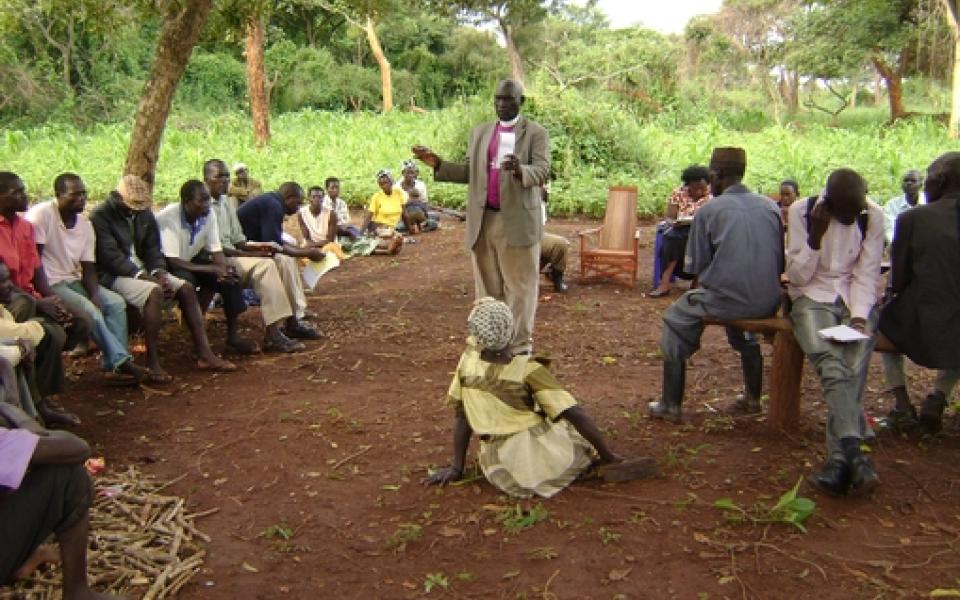
For more than two years, members of the Acholi Religious Leaders Peace Initiative CC have worked to intervene in the many conflicts over land that followed the end of Northern Uganda’s 20-year civil war.
While the Ugandan government has provided amnesty to many former members of the Lord’s Resistance Army, and has even provided many of the former rebels with seeds, tools and other equipment, neither the returning soldiers nor their wives nor other persons displaced by the war have access to land – a crucial resource in this agricultural society. As a result, according to Uganda’s amnesty commission, only 5,335 out of 26,288 ex-combatants have been re-integrated into their communities, the United Nations reported in March.
Those combatants are only a few of the 1.8 million people displaced during the height of Uganda’s civil war. A United Nations report estimates that nearly 25 percent of formerly displaced persons returning to Uganda have encroached on someone else’s land -- forcing local councilors to contend with an estimated 12,000 land cases in each of the last two years. Without a speedy resolution to those conflicts, both local officials and outside observers fear the disputes over land could lead to violence.
The conflicts have become even more acute in recent months as the value of Uganda’s land has grown. According to Archbishop John Baptist Odama, a Trustee of URI’s Global Council and former chairman of the Acholi Religious Leaders Peace Initiative, the commercialization of Northern Uganda’s land – contrary to the previous understanding of its various communities – has become the main problem in resolving the region’s disputes.
Using the training provided by URI’s Moral Imagination Program, representatives of URI Great Lakes Region and the Acholi Religious Leaders Peace Initiative launched a mediation session that will run from June 17 through July 24 in the districts of Lamwo, Gulu, Kitgum, Amuru and Nwoya.
“A cross-section of mediation sessions highlighted the deep hate that still exists between the conflicting clans and villages,” said Despina Namwembe, coordinator for URI’s Great Lakes sub-region. “Widows and orphaned children are those hardest hit by these wrangles.”
URI Great Lakes representatives say the next step in the conflict resolution process will be a face-to-face meeting between members of Uganda’s Parliament, members of the local Land Area Committees, regional religious leaders and representatives of security forces.
